Catalog and documentation
Dataedo imports reports or both reports and datasets available in a selected workspace to which the user has access.
Reports:
Power Bi Service

Dataedo Web

Datasets:
Power Bi Service

Dataedo Web

Reports
Overwiev
On the overview page, you will see basic information about the report such as report url, name, and embed url which can you can use to embed the report. You will also be able to peek at the documented report in a live embed view from Power Bi Service.
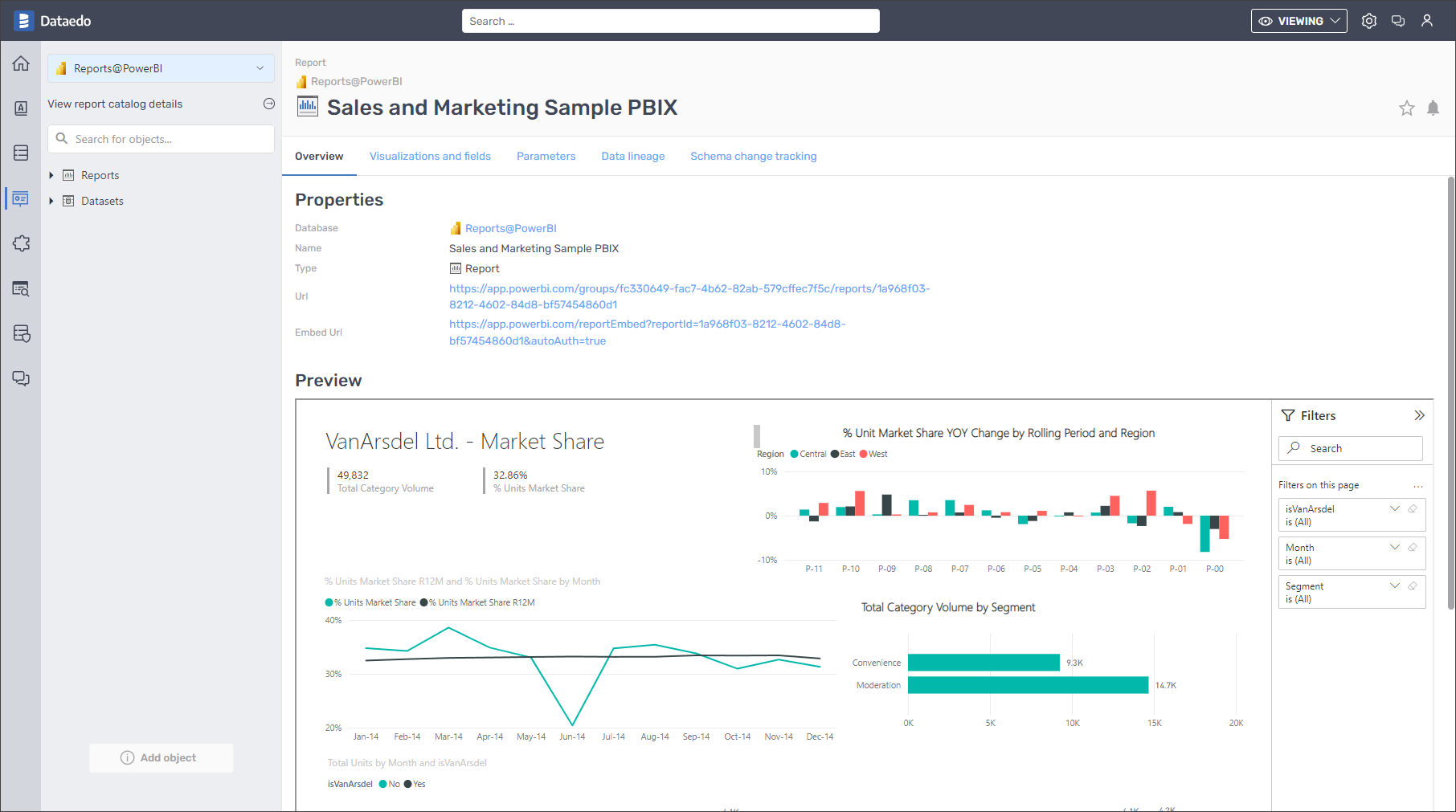
Visualisations and fields
During the import process, Dataedo will document the following report's elements:
- Pages
- Visuals
- Visuals fields
On the following, sample report which was created and is property of obviEnce, you can see a few pages, while currently active is Market Share. I also highlighted a visual with generated title - % Unit Market Share YOY Change by Rolling Period and Region. It uses three fields Rolling Period, % Unit Market Share YOY Change, and Region.
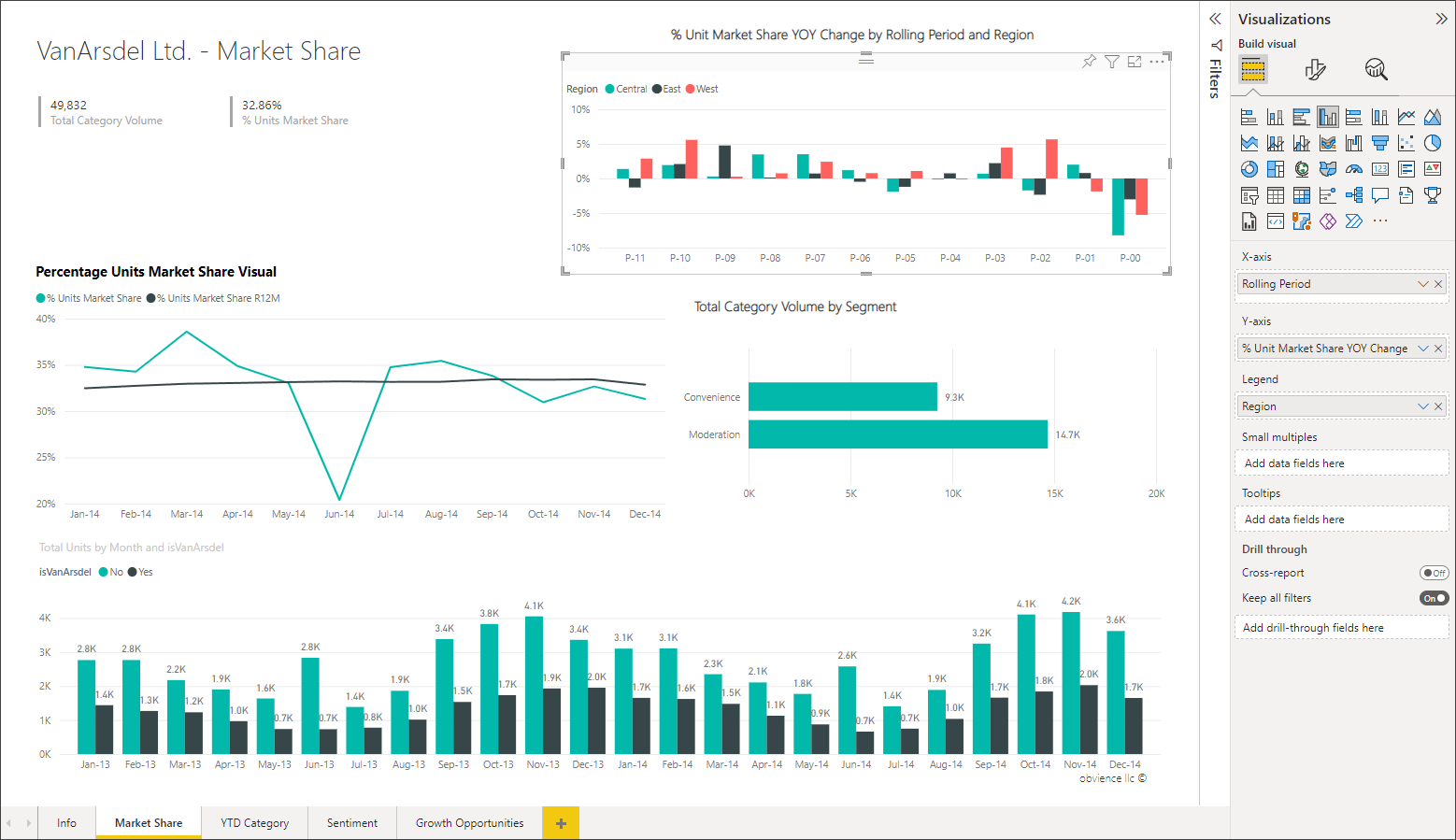
That report will be documented by Dataedo in the following way:
- Market Share page - field no. 2 with data type Page
- % Unit Market Share YOY Change by Rolling Period and Region - the field no. 7 under Market Share Page.
- Used fields - all fields under visual.

Datasets
Overview
The overview tab contains basic information regarding the dataset.

Columns
Dataedo will document all tables and columns in a dataset in the hierarchical form:

Data Lineage
Dataedo will identify and create data lineage from Dataset to Report always, for any mode of the dataset (Import, Direct Query, Live connection). Lineage from Datasources to Dataset will be created if:
- Datasource is SQL Server
- Datasource was documented in Dataedo. The documentation has to reside in the same repository as the Power BI Documentation

Currently, Dataedo automatically creates the lineage on an object level. In future releases, column-level lineage will be added. Also, data sources other than SQL Server will be supported.
Business Glossary
You can link a Business Glossary term to any Power Bi object.
Descriptions, aliases, and custom fields
When technical metadata is imported users will be able to edit descriptions of each object and element, provide meaningful aliases (titles), and document everything with additional custom fields.
Lookups / Reference data
You will be able to build Lookups for columns in Power Bi reports and datasets and feed them with distinct values from a column.
Data classification
You will be able to run classification on Power Bi reports and datasets in the repository in a search of columns containing potentially sensitive data. All built-in functions are supported.
Importing changes and schema change tracking
To import changes from Power Bi Service and update metadata in Dataedo simply use the Import changes option. All changes in reports and datasets will be shown under the schema change tracking tab.
Description changes
Changes to descriptions in Dataedo Desktop and Web Catalog are tracked and saved in the repository.
How to connect to Power Bi
Connection requirements
Workspace access
To document the Power Bi workspace, you need to have at least Viewer access to the workspace. To verify it, simply open app.powerbi.com service, and see if the workspace to be documented is available to browse.
XMLA Endpoint
Documenting Dataset is achieved with XMLA Endpoint which is available only for Premium workspaces. You can recognize if your workspace is premium with a little diamond icon next to its name:

Note: Dataedo team is working on alternative Datasets documenting method to provide this also for PRO workspaces
You can find XMLA Endpoint in workspace Settings > Premium > Workspace Connection.
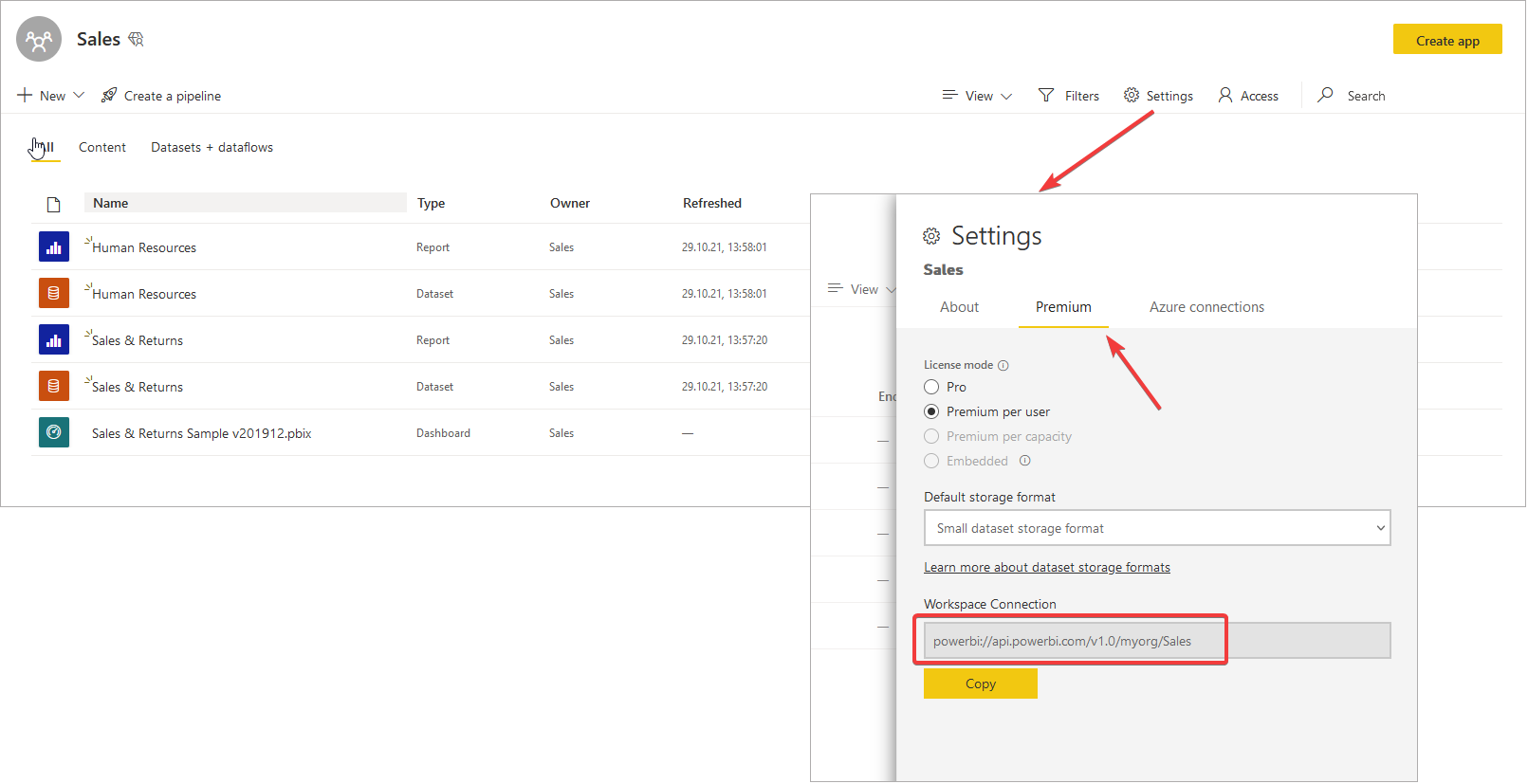
Dataedo connection
To connect to Power Bi select Add source -> New connection. On the connectors list select Power BI Reports and Datasets.
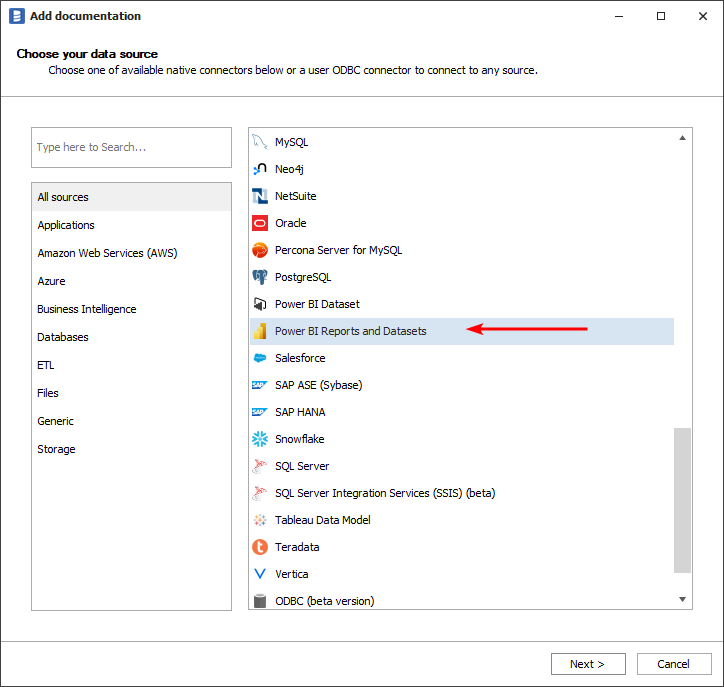
Connection Details
- Workspaces - you can provide a workspace name by simply typing it or clicking [...] button to log in to your Power Bi account and list available workspaces.
- Premium Workspace checkbox - check this box if your workspace is in premium capacity, to document datasets.
- XMLA Endpoint - if you checked Premium Workspace you will also see this box to put the Endpoint. Instruction on how to obtain this value is provided in Connection requirements section.
- Document only report pages - in case of timeouts, you can check this box. Dataedo will document only reports' pages, which should help avoid timeouts during the import process.

After clicking the [...] button to load workspaces you will need to authenticate and let Dataedo connect to your Power Bi Instance.
First, select the account on the Microsoft authentication screen:
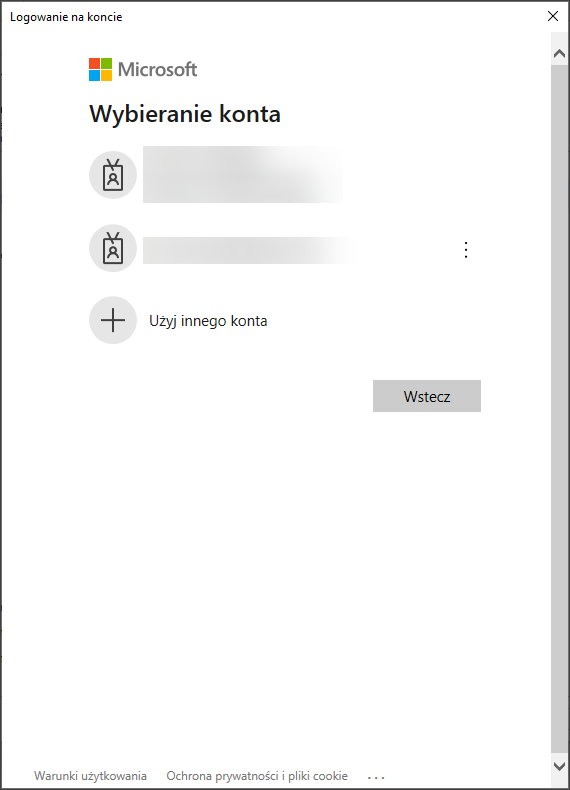
Then, if it's your first use of Dataedo, you need to accept the license agreement and give the required permissions to Dataedo.
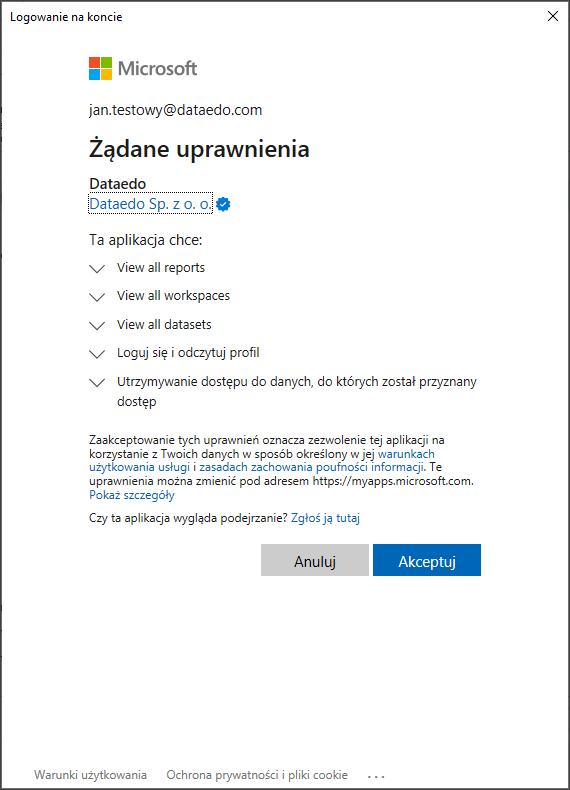
After accepting the agreement you will see a list of workspaces:

Select Workspace and provide an XMLA Endpoint if the workspace resides in the premium capacity.

Click Connect and go through the import process.
Outcome
Your Power Bi reports and datasets have been imported to a new Dataedo documentation:
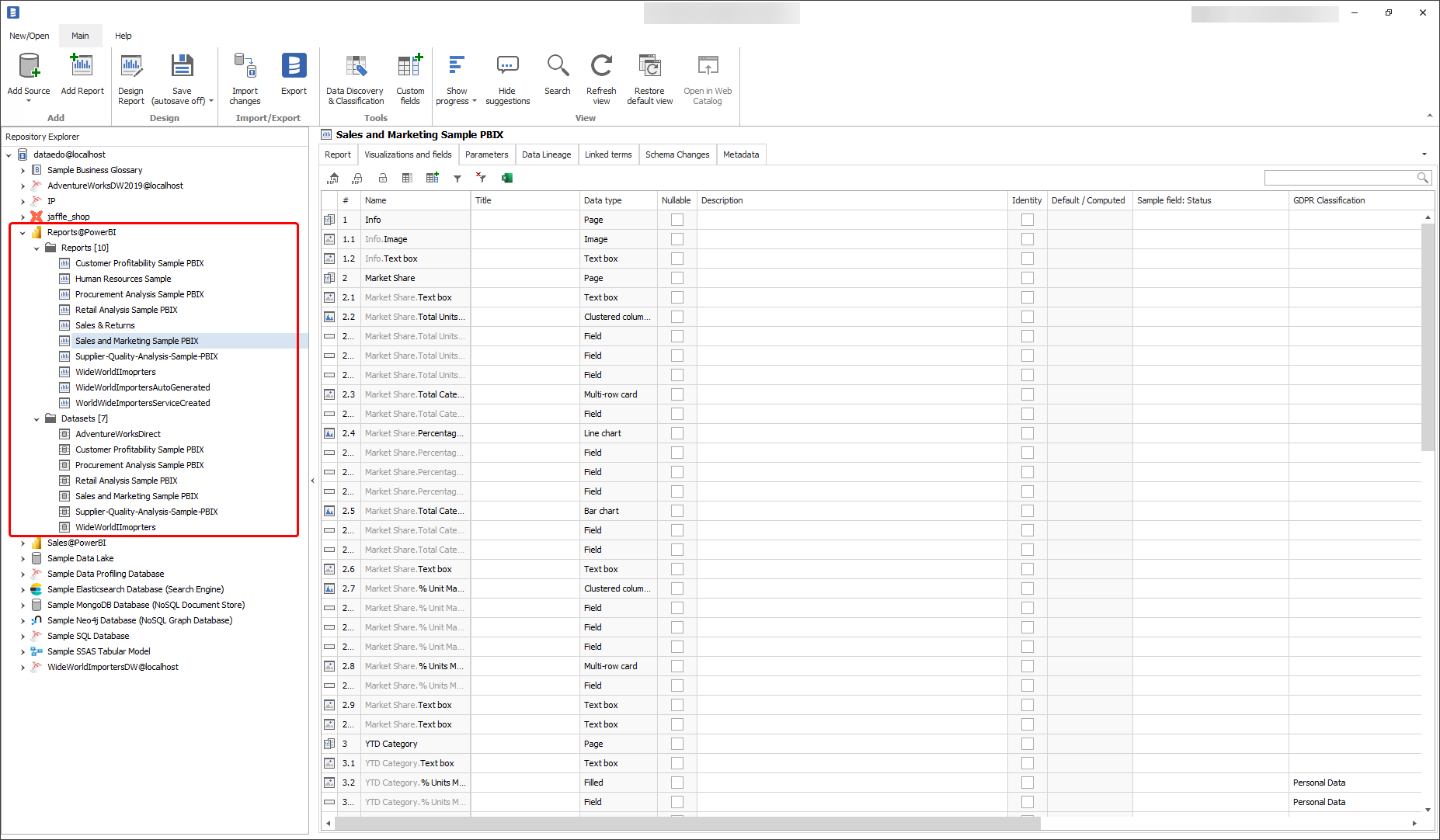











 Szymon Karpęcki
Szymon Karpęcki